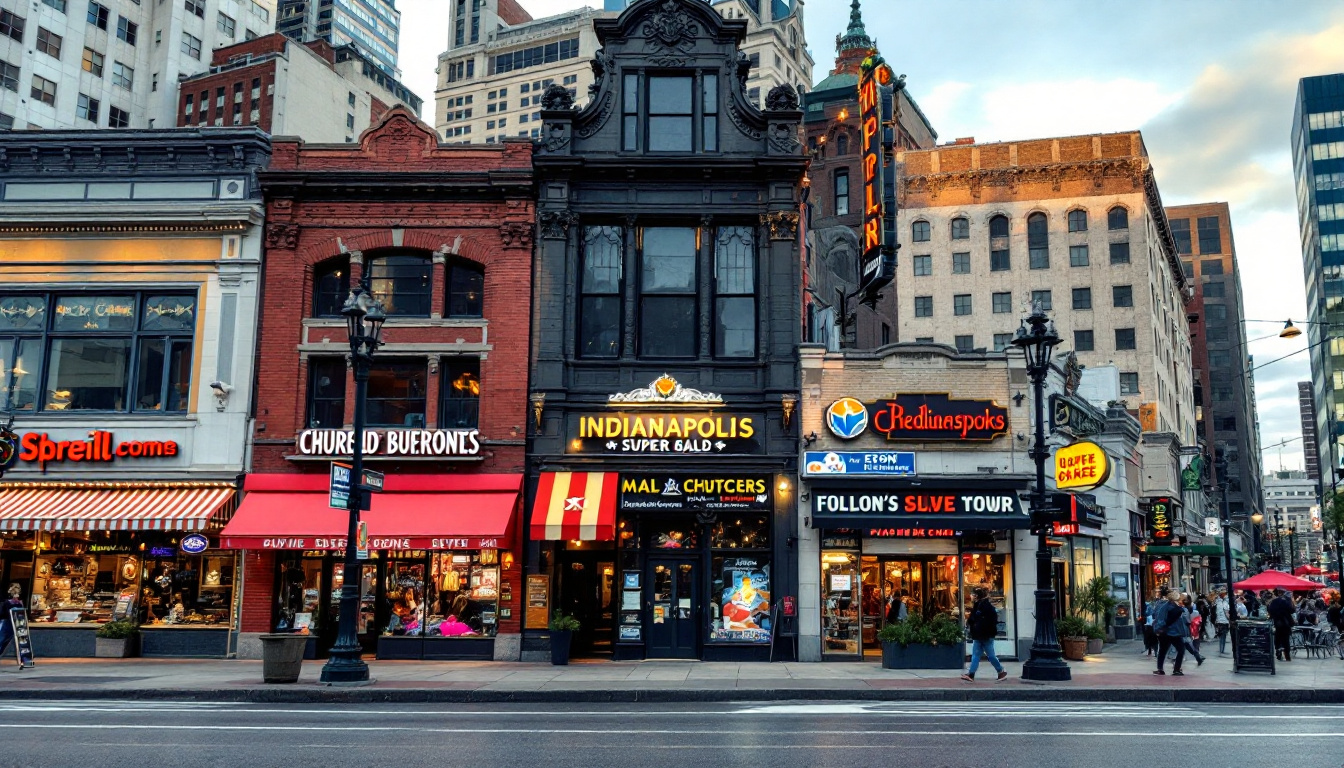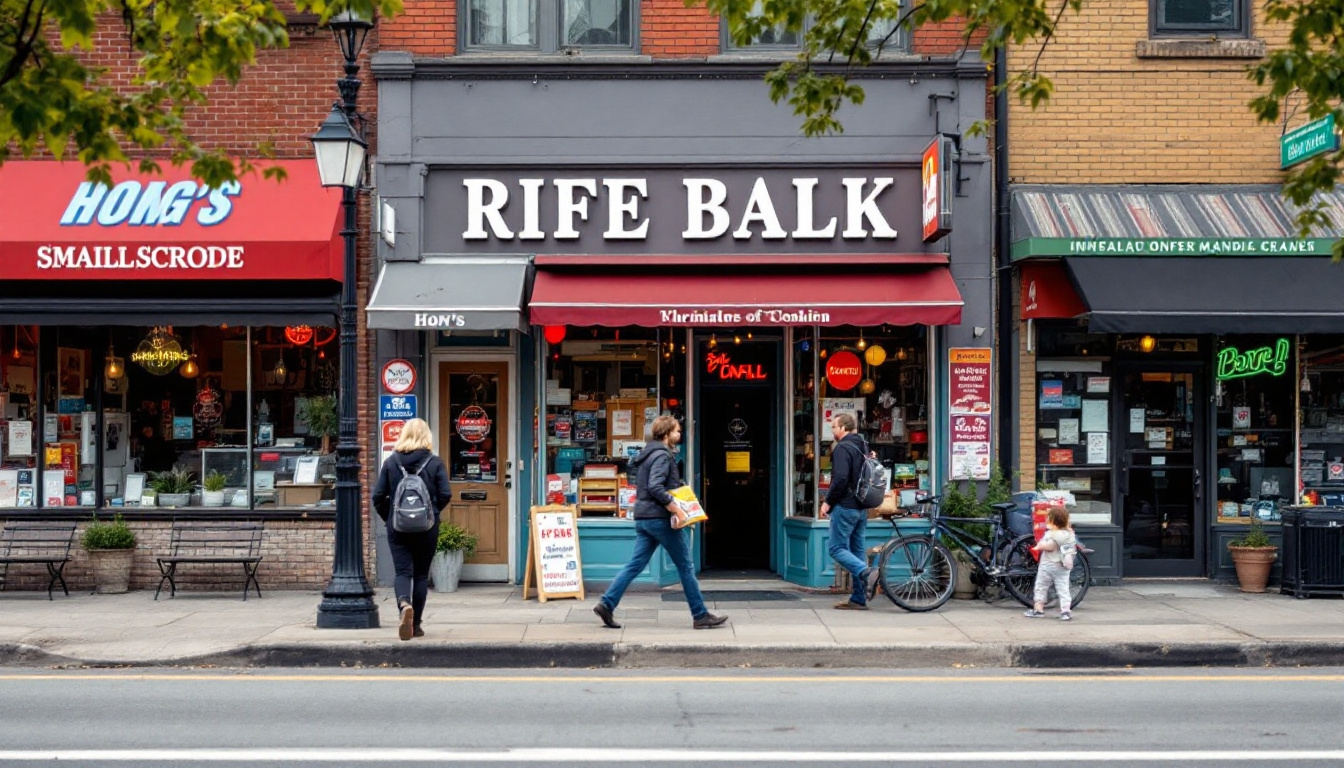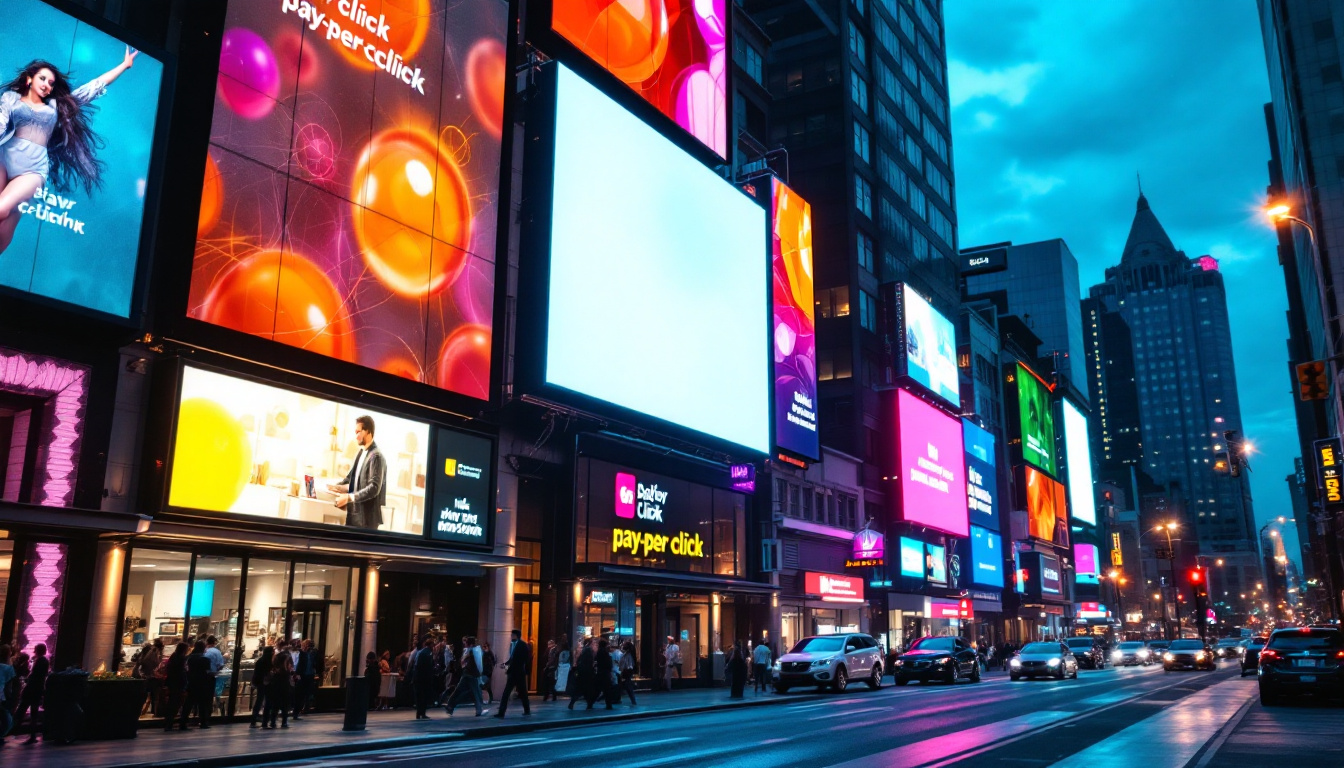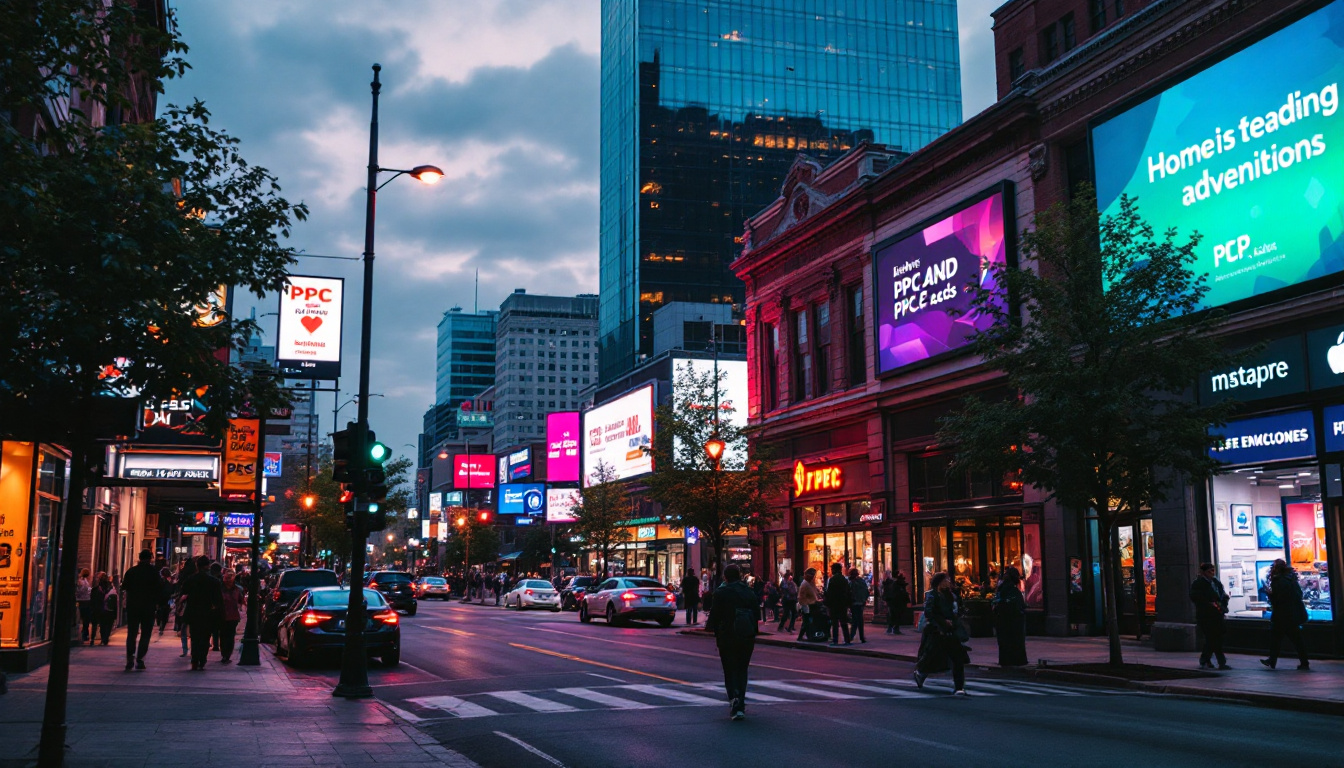Common Myths About PPC for Indianapolis, IN Businesses

Pay-Per-Click (PPC) advertising has become an essential tool for many businesses looking to enhance their online visibility and reach potential customers. However, despite its effectiveness, there are several misconceptions that often deter Indianapolis businesses from fully utilizing PPC. In this article, we will explore some of the most common myths surrounding PPC advertising and provide clarity on how it can benefit local businesses.
Debunking the 'PPC is too expensive' myth
One of the most pervasive myths about PPC is that it is prohibitively expensive for small businesses. Many entrepreneurs in Indianapolis fear that they cannot compete with larger corporations that have bigger advertising budgets.

However, it's essential to understand that PPC allows for budget control. Advertisers can set daily limits, adjust bids, and tailor their campaigns to their financial capacities. This flexibility enables small businesses to participate in PPC without breaking the bank.
Moreover, the return on investment (ROI) from well-managed PPC campaigns can often exceed the initial costs. With effective targeting and optimized ad copy, businesses can attract high-quality leads that convert into paying customers.
Cost-effectiveness through targeting
This targeting ability means businesses only pay for clicks from users genuinely interested in their products or services. By focusing on niche markets or specific demographics, Indianapolis businesses can maximize their conversion rates while minimizing wasted expenditure.
Additionally, PPC platforms like Google Ads offer tools that help in monitoring ad performance, allowing advertisers to adjust their strategies in real-time. This data-driven approach helps ensure that every dollar spent is well accounted for and aimed at achieving the desired results. For instance, businesses can analyze which keywords are driving the most traffic and conversions, enabling them to refine their campaigns continuously. This adaptability is crucial in a fast-paced digital landscape where consumer behavior can shift rapidly.
Budget flexibility
Indianapolis businesses can also take advantage of seasonality and trends. For instance, a local eatery might increase its PPC budget during the holiday season while scaling back during slower months. This strategic flexibility ensures that businesses only invest when it makes sense, further dispelling the myth that PPC is always a high-cost endeavor.
Moreover, small businesses can experiment with different ad formats and platforms to find the most cost-effective solutions for their unique needs. For example, utilizing remarketing ads can be a smart way to re-engage users who have previously shown interest in a product or service. By targeting these warm leads, businesses can often achieve higher conversion rates at a lower cost. This approach not only maximizes the effectiveness of their advertising spend but also builds brand recognition and loyalty among potential customers.
Why PPC is not just for big companies
Another common misconception is that PPC advertising is primarily a tool for large corporations. While it's true that big companies allocate substantial budgets to PPC, this doesn't mean smaller businesses cannot benefit from it.
PPC platforms are designed to cater to businesses of all sizes, offering a level playing field. The ability to set specific goals, target audiences, and control budgets means that small and medium-sized enterprises can compete alongside their larger counterparts.
Localized advertising
For Indianapolis businesses, PPC presents an excellent opportunity for localized advertising. By implementing geo-targeting, companies can ensure their ads are shown to users within specific neighborhoods or areas, making their campaigns more effective and relevant.
Moreover, advertising through PPC allows smaller companies to gain visibility quickly. Unlike traditional advertising methods, which may take time to deliver results, a well-structured PPC campaign can attract potential customers within hours or even minutes of launching.
Additionally, PPC campaigns can be tailored to reflect local culture and preferences, which can be particularly advantageous for businesses aiming to connect with their community. For instance, a local restaurant can create ads that highlight seasonal dishes or special promotions that resonate with the tastes of the Indianapolis population. This localized approach not only enhances engagement but also fosters a sense of community, encouraging customers to support local businesses over larger chains.
Furthermore, the data-driven nature of PPC allows smaller businesses to analyze their campaigns in real time. By monitoring metrics such as click-through rates, conversion rates, and customer demographics, businesses can make informed adjustments to their strategies. This agility is crucial for smaller enterprises that may need to pivot quickly based on market trends or consumer behavior, ensuring that their advertising efforts remain effective and aligned with their business goals.
Understanding the role of analytics in PPC
Analytics plays a crucial role in the success of PPC campaigns. Understanding how to analyze data effectively can make the difference between a mediocre campaign and a highly profitable one.
Indianapolis businesses must familiarize themselves with key metrics such as click-through rates (CTR), conversion rates, and return on ad spend (ROAS). These metrics provide insights into how ads are performing, what adjustments are necessary, and where to focus marketing efforts. By regularly monitoring these metrics, businesses can identify trends over time, allowing them to make data-driven decisions that enhance overall campaign performance.
Using analytics to optimize campaigns
Utilizing analytics tools allows businesses to A/B test different ad copy, target various demographics, and refine their landing pages. Testing variations will reveal what resonates best with the target audience and enables advertisers to allocate their budgets more effectively. This iterative process not only improves immediate campaign results but also builds a repository of knowledge that can inform future advertising strategies.
Furthermore, analytics help in tracking the customer journey. Understanding how users interact with ads, landing pages, and the overall website can illuminate opportunities for improvement, ultimately resulting in better conversion rates. By mapping out the customer journey, businesses can pinpoint drop-off points and optimize each stage of the funnel. For instance, if data shows that users frequently abandon their carts at a specific point, targeted interventions can be implemented, such as retargeting ads or personalized email follow-ups, to re-engage those potential customers and drive them back to the conversion path.
Additionally, leveraging advanced analytics tools can provide deeper insights into customer behavior, preferences, and demographics. By segmenting audiences based on their interactions and engagement levels, businesses can create tailored ad experiences that speak directly to the needs and interests of different consumer groups. This level of personalization not only enhances the effectiveness of PPC campaigns but also fosters stronger customer relationships, as consumers feel understood and valued by brands that cater to their specific desires.
How PPC can provide immediate results
One of the most significant advantages of PPC is its ability to deliver immediate results. Unlike SEO, which often takes time to build momentum and visibility, PPC can start driving traffic almost instantaneously upon campaign launch.
This feature makes PPC an attractive option for Indianapolis businesses looking to promote new products or services effectively. Whether launching a seasonal campaign or promoting a special offer, PPC's quick turnaround can help realize immediate revenue benefits.
Immediate visibility
The presence of ads at the top of search engine results pages (SERPs) can generate immediate visibility. This first-page presence increases the likelihood of clicks and engagement, enabling businesses to capture leads before they move on to competitors.
Additionally, businesses can support their PPC strategies with various promotion tools like extensions that highlight offers or special deals, providing potential customers with compelling reasons to engage right away. For instance, utilizing callout extensions can showcase unique selling points, while sitelink extensions can direct users to specific pages, enhancing the overall user experience and encouraging conversions.
Moreover, the ability to target specific demographics and geographic locations further amplifies the effectiveness of PPC campaigns. By tailoring ads to reach the right audience—such as local consumers in Indianapolis—businesses can ensure that their messaging resonates with potential customers. This level of precision not only maximizes the return on investment but also fosters a more personalized approach, making it easier for consumers to connect with the brand.
In addition to these targeting options, PPC platforms provide robust analytics tools that allow businesses to monitor their campaigns in real-time. This data-driven approach enables marketers to make swift adjustments based on performance metrics, ensuring that their strategies remain agile and effective. By analyzing click-through rates, conversion rates, and other key performance indicators, businesses can refine their ads to better meet the needs of their audience, ultimately driving even more immediate results.
PPC vs. SEO: Which is better for your business?
When considering online marketing strategies, one question that often arises is whether PPC or SEO is better for a business. While both have their merits, they serve different purposes and can be complementary when executed correctly.

PPC provides immediate results and visibility, making it ideal for time-sensitive promotions or new product launches. SEO, on the other hand, focuses on long-term benefits through organic traffic generation, but it may take longer to achieve significant results.
Complementary strategies
Indianapolis businesses can benefit from leveraging both PPC and SEO. Using PPC aids in understanding which keywords are most effective in generating conversions, which can inform SEO strategies. Additionally, appearing in both paid and organic search results can improve overall brand visibility and credibility.
Ultimately, the decision should be based on business goals, budget, and timeline. An integrated approach often yields the best results, combining the immediate impact of PPC with the lasting benefits of a strong SEO presence.
In conclusion, dispelling these common myths about PPC can empower Indianapolis businesses to take advantage of its many benefits. By understanding the cost-effectiveness, accessibility, role of analytics, and the synergy between PPC and SEO, local companies can build successful advertising campaigns that drive growth and success.

As a Google Ads expert, I bring proven expertise in optimizing advertising campaigns to maximize ROI.
I specialize in sharing advanced strategies and targeted tips to refine Google Ads campaign management.
Committed to staying ahead of the latest trends and algorithms, I ensure that my clients receive cutting-edge solutions.
My passion for digital marketing and my ability to interpret data for strategic insights enable me to offer high-level consulting that aims to exceed expectations.





























